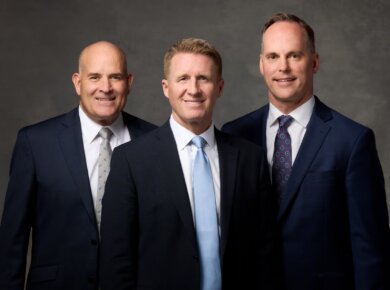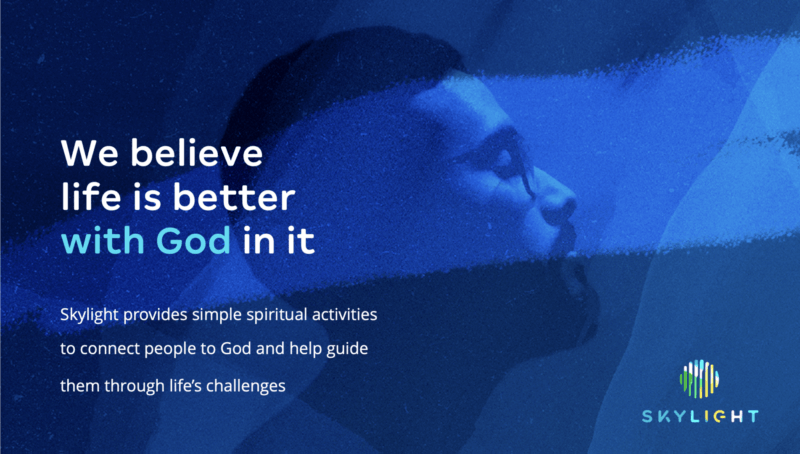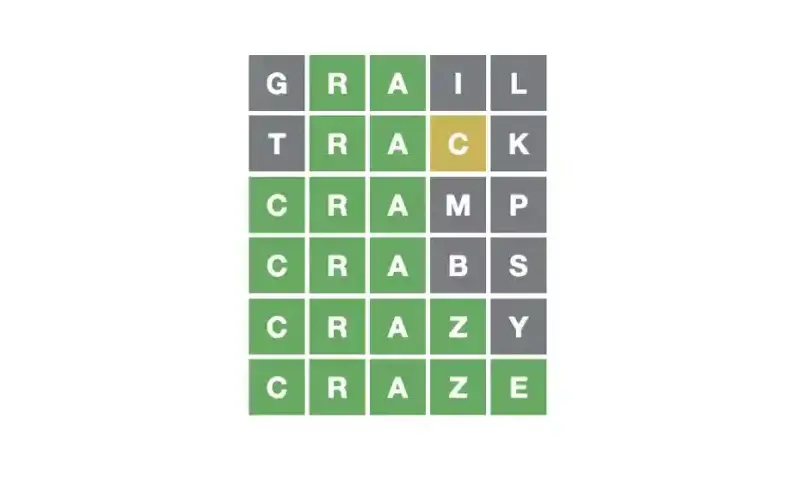Radiant Foundation
National Day of Prayer Survey
Executive Summary of Findings
May 3rd, 2023
Overview of Method
City Square Associates partnered with Thatcher+Co and the Radiant Foundation (Skylight) to field a national online survey on the topic of spiritual practice and prayer among Americans. The survey was fielded between April 6th – 12th 2023 to an online panel of U.S. adults between the ages of 18 and 64 (referred to below simply as “Americans” for short). The sample was managed to be nationally representative with regard to population distribution across the nine census divisions and reflects the demographic diversity of the U.S. adult population. (A demographic profile of the survey sample is at the end of this executive summary.) The study resulted in a total sample of n=1,783, with a margin of error of +/- 2%.
Although the survey included no screening criteria for participation, many of the questions regarding prayer specifically were only asked of those who indicated in the survey that they pray (n=1,090).
Overall Spiritual Practice
- Nearly 8-in-10 Americans consider themselves either religious or spiritual.
While they’re most likely to describe themselves as both, they’re more likely to say that they’re spiritual rather than religious. Those who don’t pray were especially more likely to describe themselves as spiritual instead of religious. - 85% of Americans do some kind of spiritual practice to connect with a higher power. This included meditation, prayer, spiritually-based yoga, reciting affirmations, and
- 61% of Americans say that they pray.
This was the most common among five kinds of spiritual practices listed as ways to connect with a higher power. Incidence of prayer correlated with age, as it was more popular among older respondents. - Over a third of Americans (39%) practice meditation.
A similar proportion of Americans (38%) said that they practice mindfulness, as an equally common form of connecting with a higher power. Gen Z and Millennials were more likely than Gen Xers and young Boomers to say that they engage in these kinds of practices (along with yoga and reciting affirmations). - Americans (re)connected with a higher power during COVID.
Among those who engage in any of the five kinds of spiritual practices listed, the majority (51%) said that the frequency with which they did at least one of those practices increased during the COVID lockdowns. This observed increase was roughly equal across the different kinds of practices.
More at https://t.co/4AtzBKzQpV#prayer #meditation #affirmation@Spotify @spotifyartists @SpotifyBrasil @SpotifyMexico @SpotifyUSA @spotifycharts @SpotifyCares @SpotifyCanada @SpotifyCaresJP pic.twitter.com/ynyZcoFhz5
— Skylight (@skylightapp_) July 9, 2023
The Practice of Prayer
- Prayer most often takes place at the beginning and end of the day.
Those who pray were most likely to say they typically do so when they first wake up (50%) and just before going to bed (55%) or at night (45%). Similarly, on average, praying Americans tend to do so approximately twice per day, for an average total time of 18 minutes daily. - Beyond their bedroom, prayer often takes place on the move.
While the bedroom was the most popular place for prayer to take place (81%), this was followed by 61% who say that they pray in their car. Only 46% said that they’ve prayed at their place of worship in the past year; they were nearly as likely to say that they’ve prayed out in nature (43%) or at their work (39%)—typically at their desk or work station. - Americans pray most often by themselves, although younger GenZennials tend to be more social.
81% say that they regularly pray by themselves, and incidence increased with age. Conversely, younger respondents—especially Gen Z and Millennials—were more likely than Gen Xers and young Boomers to say that they regularly pray with their family or members of their spiritual group. Nearly a quarter of all respondents said that they pray around their pets regularly. - Three-quarters of those who pray use at least one object to aid in prayer.
76% of respondents said they prayed with at least one of twenty spiritually-associated objects listed in the survey, at least Books and texts were the most popular items, used at least a few times a week in prayer by 25% of respondents. Other commonly used items include candles or burning objects (used by 19% of respondents at least a few times a week), a journal (18%), a kneeling pad or pillow (18%), a Rosary or prayer beads (18%), or some kind of iconography (18%). - Prayer most often occurs with others in mind.
Respondents were most likely to say that, in the past 12 months, they prayed for loved ones during a time of crisis (76%) or when someone else was ill (71%). They were less likely to be thinking of themselves during prayer: 56% prayed for themselves during an illness, and prayers that focused on their own performance in something—such as before a job interview (33%), an exam (30%), or a big presentation (28%)—were relatively less When they do pray for others, they’re most likely to do so for those in their immediate social circle—their family (84%), friends (68%), or spouse (52%)—along with those in need (62%) or victims of violence (44%). - Prayer is not just about connecting with God, but also self-improvement.
Connecting with God (71%) was by far the most commonly cited reason for prayer overall. But a noteworthy portion of respondents also identified prayer as a means for self-improvement in several ways: for many, it’s seen as a way to find solutions to their problems (41%), a way to feel in control of their lives (36%), and a way to feel like better versions of themselves (32%). For others, there is a healing quality to prayer: 29% say they pray as a way to heal from trauma, and 1-in-10 respondents (12%) say they do so to help overcome an addiction.Video Player00:0000:00 - The emotional payoff of prayer.
Nearly half (45%) of Americans who pray say they do so to feel less anxious or depressed. Accordingly, among 17 descriptors listed for how they typically feel after prayer, the terms “calm” (42%), “grateful” (41%), “optimistic” (23%), and “humbled” (23%) were selected most often.
- Prayer and sports.
1-in-5 respondents reported that in the past 12 months, they had prayed specifically for their favorite athletes or sports teams to win. Among those respondents, the Superbowl, NBA Finals, and World Series were cited most often as contexts for such Overall, the sample was split in terms of whether or not they believe it to be appropriate to pray for their team or athlete to win; generationally, there was much more of an acceptance of this among Gen Z and Millennials compared to Gen Xers and young Boomers. - Prayer and the media.
Respondents were much more aligned (71%) on their opinion that prayer is not accurately reflected in pop culture and the media (TV, movies, etc.)—a belief held more strongly among young Boomers. On the other hand, it does play an influential role in their own practice: half of respondents say that they’ve “been influenced by a song, movie, or TV show to pray or pray more,” and the same proportion of the sample said they’ve “been moved to pray by a social media post where somebody requested prayers.” - Americans get answers to their prayers.
A majority of praying Americans (87%) believe that they’ve received an answer to their prayers in the past 12 months—an opinion held equally among all A similar proportion of respondents (84%) agreed to a similar statement, that their “higher power hears and responds to the prayers of those of all religious traditions, and even those of the non-religious or religiously unaffiliated.”
Spiritual takes on Star Wars
- More than half see their belief system reflected in “The Force.”
When provided with a brief description outlining the concept of “The Force” from Star Wars, over half (56%) of all respondents—including those that pray, engage in other spiritual practices, or don’t do any kind practice to connect with a higher power—said that it aligns “somewhat” or “very much so” with their own spiritual beliefs. The incidence of alignment was the highest among Gen Z. - A character they’d pray or meditate with from the Star Wars universe.
When presented with a list of nine characters from the Star Wars franchise, respondents were most likely (23%) to pick Yoda as the character they’d most prefer to pray or meditate with. This was followed in order of preference by Grogu (15%) and Obi Wan Kenobi (10%). On the flip side, they were least likely to want to pray or meditate with C-3PO (2%). 30% either didn’t know enough about Star Wars to respond or otherwise wouldn’t pray or meditate with any of those nine characters.
Sample Summary
Note: The survey also captured demographic information around education, income, marital status, presence of children in the household, and religious affiliation. Those data are summarized in full in the survey crosstabs.
| Gender | n | % |
| Male | 844 | 47% |
| Female | 927 | 52% |
| Non-Binary | 12 | 1% |
| Age: Generation | n | % |
| Gen Z (18-26) | 481 | 27% |
| Millennial (27-42) | 651 | 37% |
| Gen X (43-57) | 465 | 26% |
| Young Boomer (58-64) | 186 | 10% |
| LGBTQ+? | n | % |
| Yes | 237 | 13% |
| Ethnicity: Hispanic | n | % |
| Yes | 338 | 19% |
| Race | n | % |
| AAPI | 151 | 8% |
| Black / African-American | 312 | 17% |
| Native American / Alaskan | 73 | 4% |
| White / Caucasian | 1,230 | 69% |
| Other | 92 | 5% |
| Geography | n | % |
| East North Central | 262 | 15% |
| East South Central | 103 | 6% |
| Mid Atlantic | 274 | 15% |
| Mountain West | 120 | 7% |
| New England | 85 | 5% |
| Pacific West | 210 | 12% |
| South Atlantic | 396 | 22% |
| West North Central | 109 | 6% |
| West South Central | 224 | 13% |
About City Square Associates
City Square Associates is a marketing research and consulting practice based in Cambridge, MA. We use qualitative and quantitative research methods to obtain consumer insight that drives business decisions. For over 25 years, City Square has worked on behalf of media companies, educational institutions, financial services organizations, charitable foundations, public sector agencies, community-based non-profits, and others to support their missions and inform their strategic vision.
402 Cambridge Street, Cambridge MA 02141 | 617-441-7733 | citysquareassociates.com

















